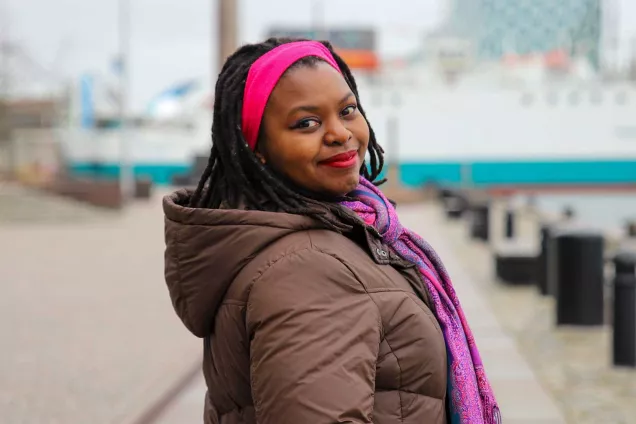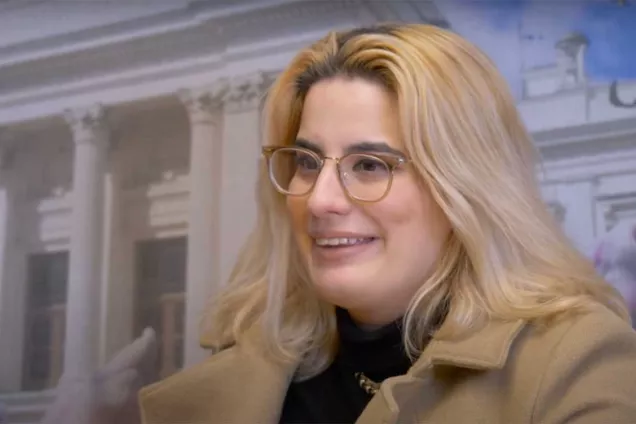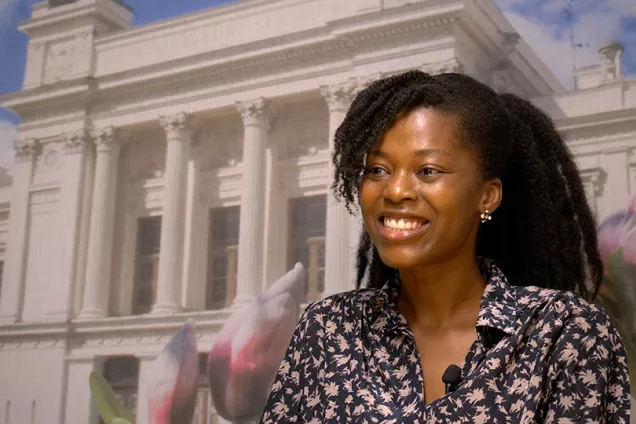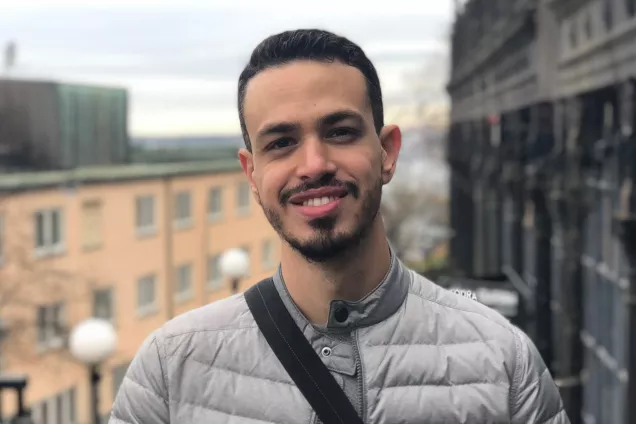What Francesco says about the Master's in Strategic Communication

Francesco from Italy
We are taught to be autonomous, independent and critical towards our surroundings and ourselves.
Why did you choose to study the Master’s programme in Strategic Communication at Lund University?
"Before applying to the MSc programme, I had obtained a Bachelor's degree in Communication Science and gained one year of experience as a strategic communicator. Even if I already occupied a stable position in Italy, and I really enjoyed it, at the same time I recognised I was missing something. I became aware of the fact that my 'cultural baggage' and view of communication had a gap that needed to be filled.
Thanks to the Erasmus+ experience I had previously, I was already aware of the fact that studying in an international environment is not only challenging, but also boosts your competences and personality. Hence, I started looking for a top-quality Master's which could offer me two things at the same time: a complete preparation for my future career and a stimulating ecosystem, like the one common for Scandinavian education."
What is the best part of this programme and why?
"The thing that I have really liked since day one is how the student is conceived by and within the University – the student is at the core of everything. I still remember when during the very first days, one of the department's heads came to our class to welcome us and said something I vividly remember: "We are going to build the knowledge together". In one year of studies that sentence was the motto of all our activities.
This type of education, which I wasn't used to, relies upon the student bringing and improving knowledge and sharing it with the rest of the class. Here we are trained to be autonomous, independent and critical towards our surroundings and ourselves. In addition, the composition of our class is really heterogeneous (we have different ages, come from different countries and professional backgrounds) and this adds even more value to the co-creation of knowledge.
Moreover, the relationship between students and professors is very open and two-way: the professors engage everybody during lectures, seminars and workshops, that as a result are incredibly participative!
This is also evident in the examination parts of our courses, that are crafted with two kinds of tests: an individual and a group one. Especially the latter makes us more conscious of the fact that, in our future career, we are never going to work alone. To be prepared to work in teams is also a kind of test that you and your teammates need to pass. I think this makes things more interesting, because you really see how much you can learn from one another.
Another thing that I really like about our Master of Science in Strategic Communication is the perfect balance between theory and practice. Those two aspects of the discipline are parallel, and provide students with the opportunity to prepare both for an academic and a professional career."
In what way have your studies changed how you look upon communication?
"My academic background was based on sociological, psychological and linguistic paradigms. I have to be grateful for that, although it wasn't enough to satisfy my expectations of future professional completion. The thing that I was missing from my previous experience, as mentioned before, was the organisational and managerial perspective, which is the overarching perspective within our department and this Master's.
This entails conceiving communication as a phenomenon to be organised, managed and analysed for organisational purposes. That is to say, communication can be seen as a constituent element of reality, as a reiterative process between the inside and outside of the environment spaces in which we live as individuals and organisations.
We have, in a way, inherited from public relations and marketing a lot, but the way in which our study plan is designed makes it more holistic and interdisciplinary, integrated also through critical approaches, which leads to discourse on the ethic of culture."
What are your future dreams?
"After my graduation, I dream of directly starting to work in the field of non-commercial communication, which is the umbrella term for organisations such as political parties, NGOs, institutions, associations, foundations, art centres etc., and I would really like to do that back in Italy. The main reason why I wanted to study abroad was to discover new and different ways of observing and acting in reality (even if we learned that the existence of an objective reality is questionable)."
What is it like to live and study in Sweden?
"I think that Sweden as a country represents a best practice civic lifestyle. Maybe it is a little bit colder and more expensive than Italy, but for Europeans, the Swedish Universities are for free, and I have to say that it is an investment that is completely worth it. I have learned a lot here; not only academic facts and theories, but also new ways of interacting in small–medium communities like the city of Lund!"

Meet our student ambassador Rooh
Read her testimonial and chat with her via Unibuddy.

Meet our student ambassador Mirna
Listen to her testimonial and chat with her via Unibuddy.

”The best thing is getting to apply what you have studied”
Naana from Ghana

"Nourishes a critical perspective on communication"
Ammar from Egypt

"Incredibly relevant for the modern job market"
Olena from Ukraine

"This programme really gives you many opportunities"
Amanda from Norway
What Ivanna says about the Master's programme and her time in Sweden
Read her post at the Study in Sweden blog.